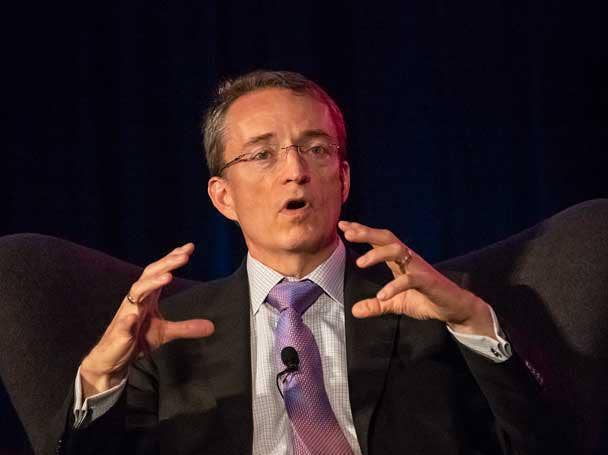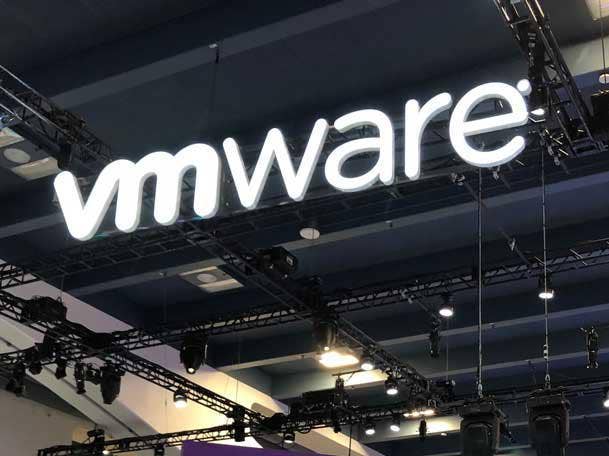VMware Violated US Securities Act To Hit Targets, SEC Says: What You Need To Know
‘The SEC Staff has confirmed that it does not intend to recommend enforcement action against any current or former VMware officers or other member of management in connection with the investigation, and this settlement concludes the matter,’ VMware says, refusing to answer further questions.

VMware would have missed its earnings targets numerous times since May 2019 if it had not shifted “tens of millions of dollars” in revenue into future quarters and “obscured” a slowdown in demand for its product from investors, all in violation of the U.S. Securities Act, authorities said earlier this month.
The U.S. Securities and Exchange Commission issued a “cease and desist order” to force the Palo Alto, Calif.-based virtualization leader to stop the practice of “discretionary holds” where a company withholds reporting all of its revenue until the following quarter so that its sales teams are given a “buffer” to meet future targets.
“VMware misleadingly reassured investors on quarterly earnings calls and in earnings-related press releases and other earnings materials … that its revenue growth was meeting expectations, when revenue actually would not have met expectations or would have missed expectations by a larger amount without VMware’s continual net reductions in its discretionary backlog,” the SEC wrote Sept. 12.
VMware told CRN it is not commenting beyond a statement issued last week, saying it agreed to pay $8 million in penalties to the government “without admitting or denying the SEC’s findings.”
[RELATED: VMware Pursuit Brings Broadcom’s ‘Illegal’ Past Into Focus]
“The SEC’s findings do not include any findings that the company failed to comply with generally accepted accounting principles,” VMware wrote in the statement. “The SEC Staff has confirmed that it does not intend to recommend enforcement action against any current or former VMware officers or other member of management in connection with the investigation, and this settlement concludes the matter.”
However, the SEC says that VMware violated Sections 17(a)(2) and (3) of the U.S. Securities Act, which Cornell Law School calls “a key anti-fraud provision” on its website.
According to the SEC, the 1933 law would “prohibit any person from directly or indirectly obtaining money or property by means of any untrue statement of a material fact … or engaging in any transaction, practice, or course of business which operates or would operate as a fraud,” the SEC said. Additionally, the commission found that VMware violated several of its rules around securities.
Here’s what else you should know about the SEC’s allegations against VMware.

VMware Began Violating The U.S. Securities Act In February 2018
In 2018, VMware’s finance and accounting personnel formalized its “Bookings Finalization Process & Backlog” process into a written policy, the SEC said. VMware’s senior management would then hold a “regularly scheduled” meeting near the ninth week of each quarter, which would decide how many sales it to hold onto for that quarter, and how many to place in the next quarter, the SEC said.
“Decisions whether to release and book any discretionary holds for particular (managed pipeline) orders were made in the final weeks, days, and hours of the quarter by VMware senior finance and accounting personnel,” the SEC stated in their order. “License orders that were still in (managed pipeline) at quarter-end were typically booked, and the license revenue recognized, within the first few days of the next quarter.”
According to the SEC, VMware’s business continually slowed “during the course of FY20” but the decline was “obscured” because the company shifted sales between quarters, which it referred to in internal emails as the “burn” or “use” of managed pipeline.
“The … reduction of that backlog throughout FY20 resulted in more revenue being recognized in each quarter than would otherwise have been recognized, allowing VMware to meet analyst estimates it would otherwise have missed,” the SEC stated.
The SEC order did not name any VMware executives or accuse any individual of wrongdoing in relation to the company’s actions. Nor did it release the “Offer of Settlement” it has entered into with VMware. CRN has filed a request asking the SEC to release the document, or present the legal basis under which it is being withheld from the public.
Broadcom, which is currently pursuing a $61 billion acquisition of VMware, did not respond to requests for comment on whether it used VMware’s “misleading” earnings when it calculated the value of the company to secure financing for its takeover.

Former VMware CEO Pat Gelsinger
Former VMware CEO Boasts Of ‘Winners and Losers’ To Analyst During Falsely Inflated Quarter
Analyst John DiFucci was stumped while listening to VMware’s revenue numbers for its first quarter 2020. Other infrastructure software companies had posted soft quarters, but not VMware. During the earnings call, he asked then-CEO Pat Gelsinger, who’s now the chief executive of Intel Corp., for help figuring out how it was that VMware had not succumbed to the slowdown he saw elsewhere, according to the transcript.
“I don’t want to spend too much time on that because it was really strong results here, but VMware aside I guess Pat (Gelsinger) then (CFO) Zane (Rowe) two of you have anything to contribute here. Do you have -- you have a view that we don’t have right like why do you think so many others are seeing some softness out there because they are. I mean I got three companies tonight and you guys are a lot better than the other two,” he asked during the May 30, 2019 earnings call. “Do you have any thing you can share with us here? And also why hasn’t this a really affected you?”
Gelsinger said it was partially due to the fact that VMware’s “strategy is resonating well into the future and super pleased with the execution of my team to deliver a very solid quarter.”
“As you’ve heard me say before, there’s going to be some winners and losers on different technology trends in side of that,” Gelsinger told DiFucci.
In fact, the SEC said VMware would not have met the analysts’ consensus estimates for total revenue that quarter, and it would not have hit its own guidance to them for license revenue, if it had not held, then carried forward sale from the previous quarter.
VMware’s CFO Zane added to Gelsinger’s comment to the analyst, “We’re comfortable with what we’re seeing early and feel good about our forecast for the year.”
Barclays analyst Raimo Lenschow followed up DiFucci’s question saying he wanted to stay on the topic of future sales, and questioned if Gelsinger or Rowe would keep guidance high for the first half of the year since the market showed competitors slowing.
Gelsinger replied: “We’re feeling quite good about the momentum that we see going into Q2 and for the second half,” with Rowe adding “some of our competitors seeing a little bit of weakness and some volatility and variability quarter-to-quarter. So again we’re comfortable where, how we’re positioned for the year and like the forecast.”
However, the SEC said VMware’s prediction for license revenue in the first half of that year would not have come to pass if it had recorded sales in the quarter they were made.

Some Quarters And A Full Year Would Not Have Come In As Stated
On May 30, 2019, during its first quarter earnings call for fiscal year 2020, VMware would have missed its guidance to investors as well as analyst consensus estimates for total revenue; additionally, VMware would not have met its guidance for licensed revenue.
During earnings reported on August 19, 2019, the company would not have met its guidance for license revenue in its second quarter earnings. Additionally it may have missed consensus estimates for total revenue that quarter, the SEC said.
The company’s full fiscal year 2020, as reported in February 2020 would have been off “by a substantially larger percentage than disclosed” had the company not been violating the U.S. Securities Act, the SEC said. The commission said VMware would have missed its guidance and consensus estimates for total revenue; and its own guidance for license revenue.

‘Suspended’ License Keys
VMware records a sale as final when it ships license keys to its customers. In order to pause the sale and carry it over to the next quarter, VMware allegedly delayed when it shipped certain license keys.
“VMware employed discretionary holds when business objectives – including those for “bookings” and revenue – had been achieved, in order not to exceed the company’s revenue guidance by too much,” the SEC wrote. “As a way, in the words of VMware personnel, to start the next quarter with a buffer or more momentum than it might have had otherwise.”
So VMware chose which orders to process and which ones to hold, in order to control how much revenue it reported, the SEC said.
“The automated email delivery of license keys – was suspended until just after quarter-end, at which point the hold was released, the order booked, and revenue subsequently recognized,” the agency said.

All The Violations
The SEC’s cease and desist order stated that VMware violated numerous rules in the two years it misled investors.
VMware violated Sections 17(a)(2) and (3) of the Securities Act, which prohibit any person from directly or indirectly obtaining money or property by means of any untrue statement of a material fact or any omission to state a material fact necessary in order to make the statements made, in light of the circumstances under which they were made, not misleading, or engaging in any transaction, practice, or course of business which operates or would operate as a fraud or deceit upon the purchaser, in the offer or sales of securities.
Additionally, the SEC said VMware violated Section 13(a) of the Exchange Act and; Rules 13a-1, 13a-11, 13a-13 and 12b-20 thereunder, which mandates that companies furnish information in reports that is “not misleading.”